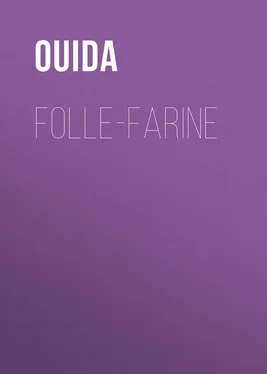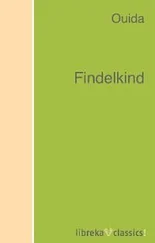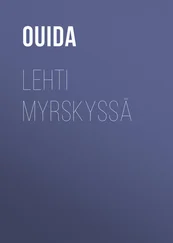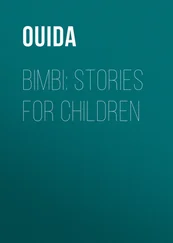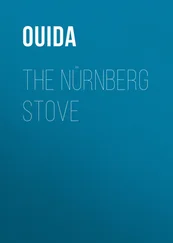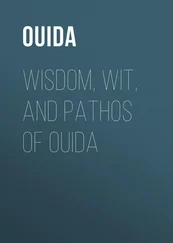Ouida - Folle-Farine
Здесь есть возможность читать онлайн «Ouida - Folle-Farine» — ознакомительный отрывок электронной книги совершенно бесплатно, а после прочтения отрывка купить полную версию. В некоторых случаях можно слушать аудио, скачать через торрент в формате fb2 и присутствует краткое содержание. Жанр: foreign_prose, literature_19, foreign_antique, на английском языке. Описание произведения, (предисловие) а так же отзывы посетителей доступны на портале библиотеки ЛибКат.
- Название:Folle-Farine
- Автор:
- Жанр:
- Год:неизвестен
- ISBN:нет данных
- Рейтинг книги:5 / 5. Голосов: 1
-
Избранное:Добавить в избранное
- Отзывы:
-
Ваша оценка:
- 100
- 1
- 2
- 3
- 4
- 5
Folle-Farine: краткое содержание, описание и аннотация
Предлагаем к чтению аннотацию, описание, краткое содержание или предисловие (зависит от того, что написал сам автор книги «Folle-Farine»). Если вы не нашли необходимую информацию о книге — напишите в комментариях, мы постараемся отыскать её.
Folle-Farine — читать онлайн ознакомительный отрывок
Ниже представлен текст книги, разбитый по страницам. Система сохранения места последней прочитанной страницы, позволяет с удобством читать онлайн бесплатно книгу «Folle-Farine», без необходимости каждый раз заново искать на чём Вы остановились. Поставьте закладку, и сможете в любой момент перейти на страницу, на которой закончили чтение.
Интервал:
Закладка:
So six years passed away; and the name of Reine Flamma was almost forgotten, but embalmed in memories of religious sanctity, as the dead heart of a saint is imbedded in amber and myrrh.
At the close of the sixth year there happened what many said was a thing devil-conceived and wrought out by the devil to the shame of a pure name, and to the hinderance of the people of God.
One winter's night Claudis Flamma was seated in his kitchen, having recently ridden home his mare from the market in the town. The fire burned in ancient fashion on the hearth, and it was so bitter without that even his parsimonious habits had relaxed, and he had piled some wood, liberally mingled with dry moss, that cracked, and glowed, and shot flame up the wide black shaft of the chimney. The day's work was over; the old woman-servant sat spinning flax on the other side of the fire; the great mastiff was stretched sleeping quietly on the brick floor; the blue pottery, the brass pans, the oaken presses that had been the riches of his race for generations, glimmered in the light; the doors were barred, the shutters closed; around the house the winds howled, and beneath its walls the fretting water hissed.
The miller, overcome with the past cold and present warmth, nodded in his wooden settle and slept, and muttered dreamily in his sleep, "A saint—a saint!—God took her."
The old woman, hearing, looked across at him, and shook her head, and went on with her spinning with lips that moved inaudibly: she had been wont to say, out of her taskmaster's hearing, that no woman who was beautiful ever was a saint as well. And some thought that this old creature, Marie Pitchou, who used to live in a miserable hut on the other side of the wood, had known more than she had chosen to tell of the true fate of Reine Flamma.
Suddenly a blow on the panels of the door sounded through the silence. The miller, awakened in a moment, started to his feet and grasped his ash staff with one hand, and with the other the oil-lamp burning on the trestle. The watch-dog arose, but made no hostile sound.
A step crushed the dead leaves without and passed away faintly; there was stillness again; the mastiff went to the bolted door, smelt beneath it, and scratched at the panels.
On the silence there sounded a small, timid, feeble beating on the wood from without; such a slight fluttering noise as a wounded bird might make in striving to rise.
"It is nothing evil," muttered Flamma. "If it were evil the beast would not want to have the door opened. It may be some one sick or stray."
All this time he was in a manner charitable, often conquering the niggardly instincts of his character to try and save his soul by serving the wretched. He was a miser, and he loved to gain, and loathed to give; but since his daughter had been taken to the saints he had striven with all his might to do good enough to be taken likewise to that Heavenly rest.
Any crust bestowed on the starveling, any bed of straw afforded to the tramp, caused him a sharp pang; but since his daughter had been taken he had tried to please God by this mortification of his own avarice and diminution of his own gains. He could not vanquish the nature that was ingrained in him. He would rob the widow of an ephah of wheat, and leave his mare famished in her stall, because it was his nature to find in all such saving a sweet savor; but he would not turn away a beggar or refuse a crust to a wayfarer, lest, thus refusing, he might turn away from him an angel unawares.
The mastiff scratched still at the panels; the sound outside had ceased.
The miller, setting the lamp down on the floor, gripped more firmly the ashen stick, undrew the bolts, turned the stout key, and opened the door slowly, and with caution. A loud gust of wind blew dead leaves against his face; a blinding spray of snow scattered itself over his bent stretching form. In the darkness without, whitened from head to foot, there stood a little child.
The dog went up to her and licked her face with kindly welcome. Claudis Flamma drew her with a rough grasp across the threshold, and went out into the air to find whose footsteps had been those which had trodden heavily away after the first knock. The snow, however, was falling fast; it was a cloudy moonless night. He did not dare to go many yards from his own portals, lest he should fall into some ambush set by robbers. The mastiff too was quiet, which indicated that there was no danger near, so the old man returned, closed the door carefully, drew the bolts into their places, and came towards the child, whom the woman Pitchou had drawn towards the fire.
She was a child of four or five years old; huddled in coarse linen and in a little red garment of fox's skin, and blanched from head to foot, for the flakes were frozen on her and on the little hood that covered, gypsy-like, her curls. It was a strange, little, ice-cold, ghostlike figure, but out of this mass of icicles and whiteness there glowed great beaming frightened eyes and a mouth like a scarlet berry; the radiance and the contrast of it were like the glow of holly fruit thrust out from a pile of drifted snow.
The miller shook her by the shoulder.
"Who brought you?"
"Phratos," answered the child, with a stifled sob in her throat.
"And who is that?"
"Phratos," answered the child again.
"Is that a man or a woman?"
The child made no reply; she seemed not to comprehend his meaning. The miller shook her again, and some drops of water fell from the ice that was dissolving in the warmth.
"Why are you come here?" he asked, impatiently.
She shook her head, as though to say none knew so little of herself as she.
"You must have a name," he pursued harshly and in perplexity. "What are you called? Who are you?"
The child suddenly raised her great eyes that had been fastened on the leaping flames, and flashed them upon his in a terror of bewildered ignorance—the piteous terror of a stray dog.
"Phratos," she cried once more, and the cry now was half a sigh, half a shriek.
Something in that regard pierced him and startled him; he dropped his hand off her shoulder, and breathed quickly; the old woman gave a low cry, and staring with all her might at the child's small, dark, fierce, lovely face, fell to counting her wooden beads and mumbling many prayers.
Claudis Flamma turned savagely on her as if stung by some unseen snake, and willing to wreak his vengeance on the nearest thing that was at hand.
"Fool! cease your prating!" he muttered, with a brutal oath. "Take the animal and search her. Bring me what you find."
Then he sat down on the stool by the fire, and braced his lips tightly, and locked his bony hands upon his knees. He knew what blow awaited him; he was no coward, and he had manhood enough in him to press any iron into his soul and tell none that it hurt him.
The old woman drew the child aside to a dusky corner of the chamber, and began to despoil her of her coverings. The creature did not resist; the freezing cold and long fatigue had numbed and silenced her; her eyelids were heavy with the sleep such cold produces, and she had not strength, because she had not consciousness enough, to oppose whatsoever they might choose to do to her. Only now and then her eyes opened, as they had opened on him, with a sudden luster and fierceness, like those in a netted animal's impatient but untamed regard.
Pitchou seized and searched her eagerly, stripping her of her warm fox-skin wrap, her scarlet hood of wool, her little rough hempen shirt, which were all dripping with the water from the melted snow.
The skin of the child was brown, with a golden bloom on it; it had been tanned by hot suns, but it was soft as silk in texture, and transparent, showing the course of each blue vein. Her limbs were not well nourished, but they were of perfect shape and delicate bone; and the feet were the long, arched, slender feet of the southern side of the Pyrenees.
Читать дальшеИнтервал:
Закладка:
Похожие книги на «Folle-Farine»
Представляем Вашему вниманию похожие книги на «Folle-Farine» списком для выбора. Мы отобрали схожую по названию и смыслу литературу в надежде предоставить читателям больше вариантов отыскать новые, интересные, ещё непрочитанные произведения.
Обсуждение, отзывы о книге «Folle-Farine» и просто собственные мнения читателей. Оставьте ваши комментарии, напишите, что Вы думаете о произведении, его смысле или главных героях. Укажите что конкретно понравилось, а что нет, и почему Вы так считаете.
